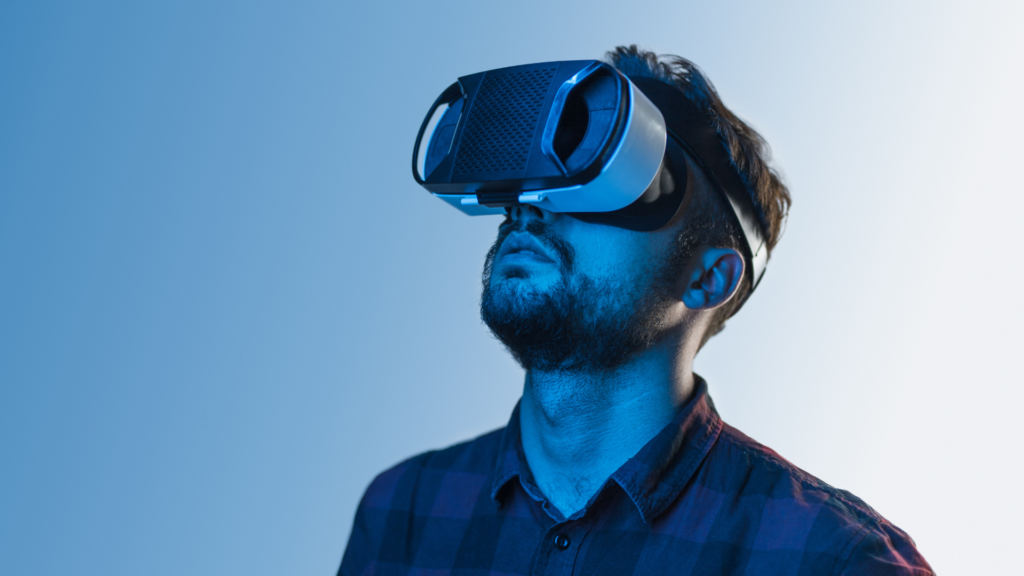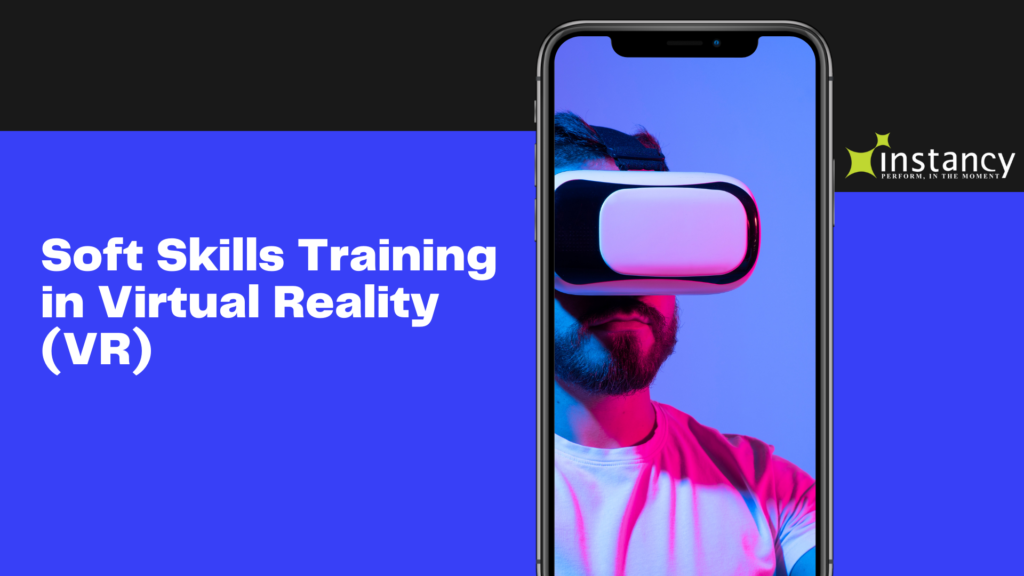Soft skills, also known as interpersonal skills, are invaluable qualities that help individuals succeed in their personal and professional lives. They include communication, teamwork, problem-solving, adaptability, and leadership.
While hard skills can be taught through classroom instruction and practice, soft skills are often learned through experience and observation.
However, with advancements in technology, specifically virtual reality (VR), soft skills training can find a new avenue for effective implementation. This blog article explores the potential of virtual reality as a tool for soft skills training and discusses the benefits it offers to individuals and organizations.

The Rise of Virtual Reality Technology:
Virtual reality technology has made considerable progress in recent years, enabling users to immerse themselves in realistic and interactive virtual environments. By creating simulations that accurately replicate real-life scenarios, VR provides a safe and controlled space for individuals to practice and develop their soft skills.
For instance, in a VR environment, users can engage in role-playing exercises, participate in virtual meetings, and confront challenging situations that require effective communication and problem-solving.
One of the primary advantages of using VR for soft skills training is the ability to provide learners with immediate feedback. Artificial intelligence algorithms can analyze users’ actions, gestures, and speech patterns in real-time, offering instant feedback and suggestions for improvement.
This personalized feedback enhances the learning experience and enables learners to identify areas for improvement. Consequently, individuals can practice specific soft skills repeatedly until they achieve proficiency, thereby accelerating the learning process.
Additionally, VR training can offer a more engaging and memorable learning experience compared to traditional methods. When individuals are immersed in a virtual environment, they are more likely to show behaviors and attitudes like real-life situations. This increased sense of presence allows learners to genuinely experience the impact of their words and actions, facilitating a deeper understanding of their own strengths and weaknesses.
As a result, individuals can develop self-awareness, empathy, and perspective-taking, all essential elements of effective communication and teamwork.
Moreover, virtual reality training can be cost-effective for organizations. Traditional soft skills training often involves hiring professional trainers, organizing workshops, and allocating dedicated spaces for practice.
These traditional methods can be time-consuming and expensive, especially for large organizations with numerous employees.
However, VR training enables organizations to deliver consistent and standardized training programs to a large number of individuals simultaneously. This scalability reduces costs while ensuring that all learners receive the same quality of instruction. Furthermore, VR training can be accessible from anywhere, eliminating the need for travel and facilitating training for remote employees.

Stepping into the Future: How VR Reshapes Soft Skills Training for the Modern Workforce:
Imagine this: stepping into a virtual boardroom, confidently pitching your idea to a diverse team of avatars representing global stakeholders. Or, navigating a simulated crisis scenario, collaborating in real-time with colleagues as you make critical decisions with real-world consequences. VR offers this and so much more, blurring the lines between training and reality, and creating a hyper-immersive environment where soft skills flourish.
So, how exactly does VR elevate soft skills training to the next level? Let’s delve into the magic behind the silicon:
1. Experiential Learning: Forget lecture halls and PowerPoint presentations. VR throws you headfirst into real-world scenarios, forcing you to hone your soft skills in the heat of the moment. Whether it’s negotiating with a demanding client, delivering a presentation in front of a large audience, or navigating a complex ethical dilemma, VR provides a safe space to experiment, fail, and ultimately, excel.
2. Emotional Intelligence Amplified: VR technology taps into the power of empathy, allowing you to step into the shoes of others and truly understand their perspectives. Imagine leading a cross-cultural team in a virtual international project, or experiencing the challenges faced by a diverse workforce firsthand. This immersive experience fosters emotional intelligence, a cornerstone of effective communication and collaboration.
3. Personalized Learning Paths: One size never fits all, and VR recognizes this. The technology’s adaptability allows for customized training modules that cater to individual needs and learning styles. Imagine a training program that analyzes your strengths and weaknesses in real-time and adjusts the virtual environment, accordingly, providing targeted feedback and personalized challenges. This ensures each learner gets the most out of their training experience.
4. Engagement Unchained: Forget the struggle to keep trainees engaged in traditional learning settings. VR’s inherent gamification elements and interactive nature captivate learners, turning training into an engaging and even thrilling experience. Whether it’s solving puzzles collaboratively or facing off against virtual dragons (metaphorically, of course!), VR fuels motivation and keeps learners coming back for more.
5. Global Collaboration, Unbound by Borders: The physical limitations of traditional training vanish in VR. Employees from across the globe can come together in a virtual world, fostering collaboration and cross-cultural understanding like never before. Imagine brainstorming with colleagues in real-time, regardless of their location, or building virtual teams that transcend geographical boundaries. VR brings the world closer, bridging the gap for effective global training.

Conclusion:
Soft skills are vital for personal and professional success, and virtual reality has the potential to revolutionize soft skills training. By providing a safe and immersive learning environment, VR enables learners to practice and refine their soft skills through realistic simulations.
The immediate feedback offered by VR enhances the learning process and allows for self-directed improvement. Moreover, the engaging nature of VR training ensures that individuals genuinely experience the impact of their actions, thereby facilitating deeper understanding and growth.
From an organizational perspective, VR training can be cost-effective, scalable, and accessible from anywhere, eliminating the barriers associated with traditional soft skills training methods.
Therefore, the integration of virtual reality into soft skills training holds immense potential for individuals and organizations aiming to foster an environment of effective communication, collaboration, and leadership.
Also, the future of VR in soft skills training isn’t just about fancy headsets and flashy digital worlds. It’s about leveraging technology to create impactful learning experiences that translate into real-world success. This is where platforms like Instancy come in.
Instancy’s Cloud-based Learning Platform provides a seamless environment for creating, managing, and delivering VR-powered training modules, seamlessly integrating them into existing learning ecosystems. One can create immersive VR training programs with ease using Instancy’s no-code virtual reality editor.
Also, immersive content can be created with WebXR from the browser, accessible on various devices, including smartphones, tablets, and VR headsets, all in the cloud.
By combining the power of VR with Instancy’s robust capabilities, large corporate training and development companies can empower their employees with the soft skills they need to navigate the ever-evolving world of work.
Ready to dive into the future of soft skills training? Book a demo of Instancy today and discover how VR can take your employee development programs to the next level.
Let’s step into a world where soft skills flourish, collaboration reigns, and success knows no bounds with the robust power of Instancy.



